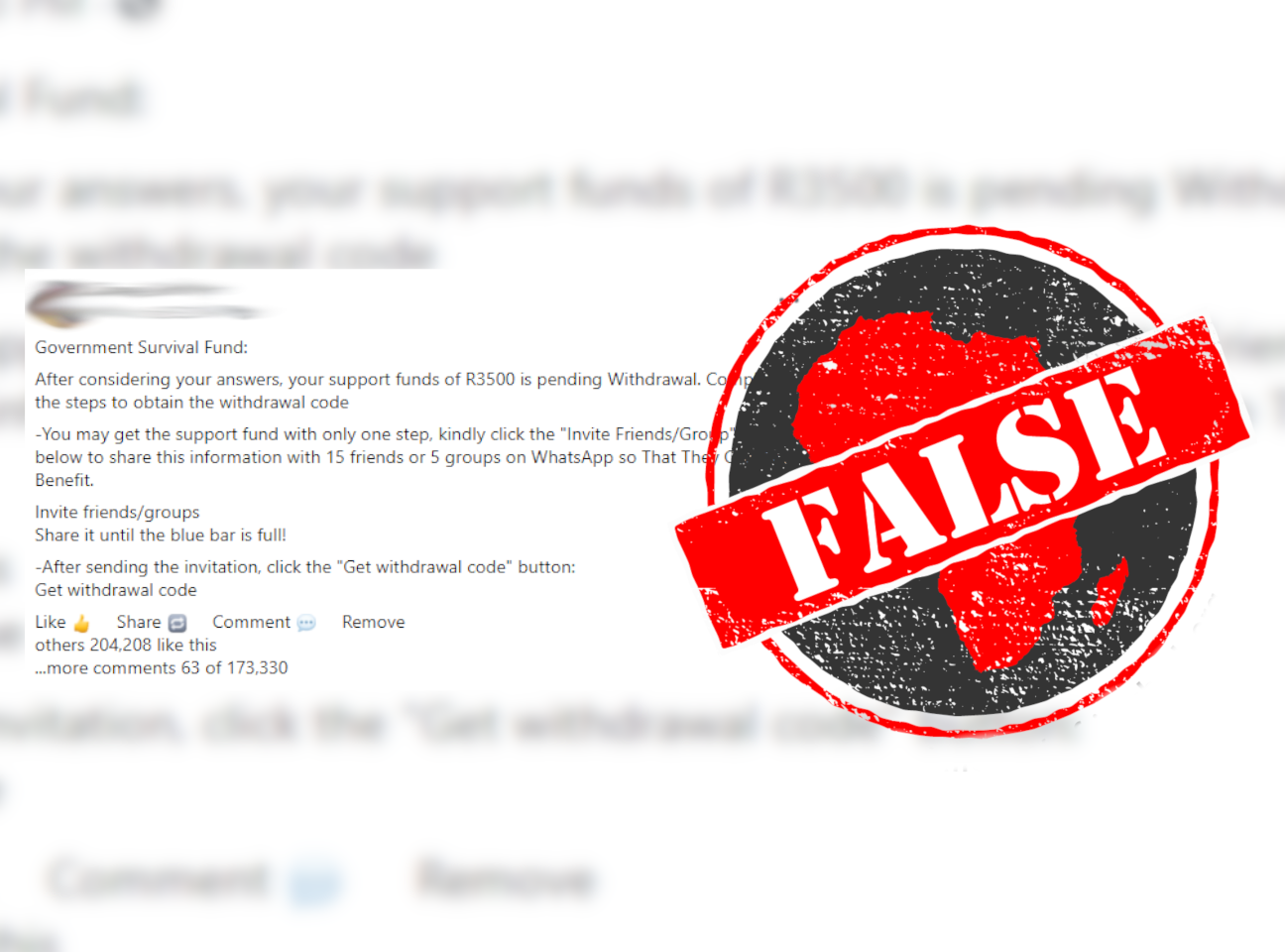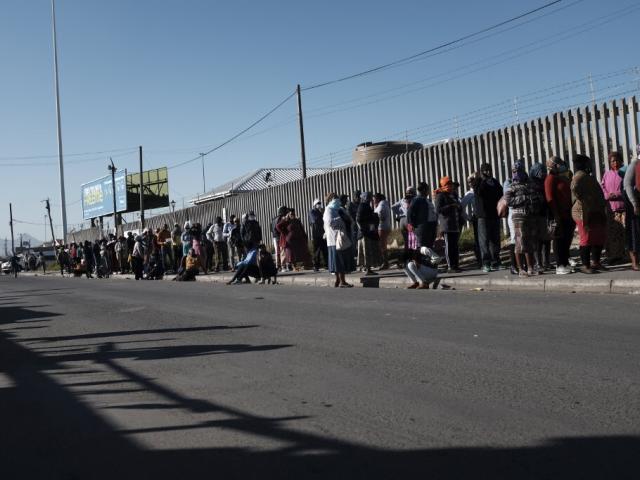Since January 2021, Facebook users have been sharing a link to a website where people in South Africa can supposedly apply for a “survival fund” of R3,500 from Sassa, the government’s South African Security Agency.
The messages are pretty similar. They give instructions on how people can access the money, and then say: “After considering your answers, your support funds of R3,500 is pending withdrawal.” But they add: “You may get the support fund with only one step, kindly click the ‘Invite Friends/Group’ button below to share this information.”
Other versions read: “Check if you are eligible for FEDERAL GOVERNMENT SURVIVAL FUND.” South Africa doesn’t have a federal government. Nigeria does.
The website the messages link to tells people they must forward its URL to 15 friends or five groups to qualify for the R3,500. The site has since been unpublished, but still displays folders containing pages with these instructions.
Other Facebook posts share a link to another site, which promises R2,000 on the condition that users provide their banking details.
Does this “survival grant” exist? We checked.

Sassa warns about ‘survival grant’ scam
On 4 March, Sassa made it clear the messages were false.
“We can confirm that this is a scam and it’s false,” Sassa spokesperson Paseka Letsatsi told SABC News.
In an interview with Stephen Grootes on the SAFM radio station, Letsatsi warned people not to give out their personal details.
“We just want to appeal to everybody to treat this very seriously,” he said. “They would then want your ID number, they would want your pin code and unfortunately then they would scam your money.”
People eligible for Sassa grants should only trust information on the agency’s website and official Twitter and Facebook pages, marketing director Shivani Wahab told Africa Check.
“Access the official Sassa website and social media pages for accurate information on all social grants.”
On 3 March, Sassa posted a warning on Facebook for people who had received the message on WhatsApp. “Please refrain from sharing this content with family and friends because it is not true.”
Wahab confirmed that the “survival grant” was a scam. “The government has ramped up its capacity to monitor and respond to misinformation during the Covid-19 pandemic and beyond,” he told us.
He added: “Circulation of fake news is a punishable offence.”
Also on 3 March, Business Insider South Africa reported that the “survival grant” scam was the fifth scam Sassa had had to warn people about since January 2021.
There is currently no “survival grant” in South Africa. Any message on social media that offers this grant is from criminals trying to steal your money.
Find out more about scams on Facebook, and how to spot them.
Republish our content for free
For publishers: what to do if your post is rated false
A fact-checker has rated your Facebook or Instagram post as “false”, “altered”, “partly false” or “missing context”. This could have serious consequences. What do you do?
Click on our guide for the steps you should follow.
Publishers guideAfrica Check teams up with Facebook
Africa Check is a partner in Meta's third-party fact-checking programme to help stop the spread of false information on social media.
The content we rate as “false” will be downgraded on Facebook and Instagram. This means fewer people will see it.
You can also help identify false information on Facebook. This guide explains how.





Add new comment